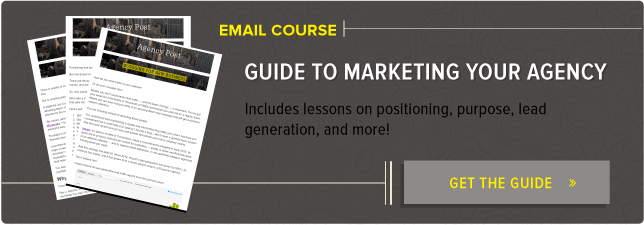

You've spent months negotiating with a buyer. Concessions were made. Contract language was revised. It's seemed like an endless back and forth.
But finally, the ink is dry. And you are just ready for it to all be over with.
Except there is one final hurdle. You have to tell your employees. And you need to make sure the transition is smooth before you can walk out the door.
The First Step to Exiting Your Agency
You have to start by putting yourself into your employees' shoes.
Selling the business is a shocking change to employees -- most of whom truly enjoy coming to work every single day. They know their routine, who to ask about a specific issue, and the rules of the workplace. Most agency owners keep deals like these private because they don't want to disrupt what is going on right now in their agency. Afterall, there is still a job to do.
So, to them, the news is akin to their spouse suddenly saying they want a divorce.
And you don't want to risk everyone walking out. Most likely, the buyer bought the agency partly due to the talent it houses.
For the announcement to go smoothly, you need do four critical things.
1) Tell employees why you're selling the agency.
The first answer helps employees understand what led to the sale. Why is it happening, and why now?
Without sharing a good reason "why," employees will think you're abandoning them or are no longer confident in the business's potential.
Neither assumption is good for retention as no one wants to work for a company that's a sinking ship.
2) Tell employees what the sale means for them.
The second answer is ultimately more important because it helps employees understand what's going to change. They want to know: What's in for me?
Discuss what's going to change about day-to-day job duties, how the company will be run, and what it means for their long-term plans with the company. Will their positions still exist under the new owner? What's different about the new owner's overall strategy? What is the new owner's vision for the company?
How might this change their career path? What new opportunities might they have? What's still being determined?
3) Enlist your managers before you tell everyone else.
Before the company-wide announcement, tell your immediate team of managers. They're going to be the first people your other employees ask for more information.
Make sure your direct reports understand what's going on. You need them to be on board with your plan because your managers will be the key to upholding -- or potentially, undermining -- the change. If they don't know what's happening or are worried about whether they're going to get fired during the transition, they can't help you keep everyone else on track.
4) Plan on at least three to six rounds of communication.
Now is the time to over-communicate. Remember: you already know everything that's going to happen. But a hundred different scenarios are circling through the minds of your employees, and the company rumor mill is going to go into overdrive.
For things to go smoothly, take these six steps:
- Discuss with the new owner what information they're comfortable sharing with the team. In general, the more, the better.
- Tell your immediate team of managers what to expect. You need them to feel confident in the new direction.
- Set up a company-wide meeting to break the news.
- Create a leave-behind materials (information sheets, a Wiki page, or other documentation) people can refer to. Assume people will forget 80% of what you share at the company-wide meeting.
- Hold the company-wide meeting. Introduce the new owner, and share high-level answers to why you're selling and what it means for employees.
- Plan on more conversations and more meetings about this. You might be celebrating your exit, but your team's dealing with an earthquake. Keep talking and listening.
Assume that you're going to lose some productivity (and that some people may even jump ship) once you break the news, as people will worry about what's going to happen. The more you communicate with honesty and transparency, the sooner everyone can get back to work.
Prepare for a Smooth Transition
If you focus on showing employees why you're selling and what it means for them -- and take care of the logistics to communicate it the right way -- you'll be on track for a smooth transition and a successful exit.







![How to Become an Indispensable Agency [SlideShare]](http://53.fs1.hubspotusercontent-na1.net/hubfs/53/00-Blog_Thinkstock_Images/indispensable-agency.png)


![Does Everyone Want Out of the Agency Business? [Tracking Trends at #MirrenLive]](http://53.fs1.hubspotusercontent-na1.net/hubfs/53/00-Blog_Thinkstock_Images/agency-business-out.png)